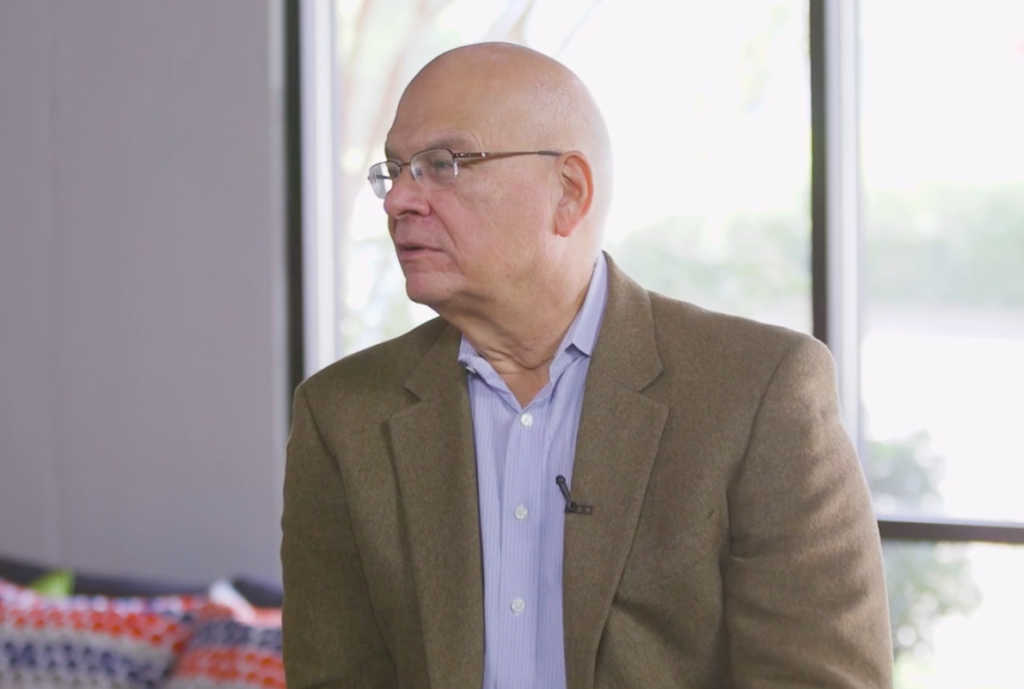“What should the role of Christians in politics be?” Tim Keller, the founder of Redeemer Presbyterian Church in New York City, asked in his latest New York Times op-ed.
Never one to shy away from the topic of politics, the theologian and well-known Christian author argued that Christians cannot fit into America’s two-party system, and they should stop trying.
Tim Keller Debunks the False Promise That Christians Won’t Suffer With One Awesome Line
Keller believes Christians must play a role in politics, and that they can’t merely “preach the Gospel” and “avoid all political discussion and engagement.” Those who do so are “essentially casting a vote for the social status quo,” he noted.
Referencing the 19th-century American churches, Keller pointed out how many failed to “speak out against slavery because that was what we would now call ‘getting political.'” Due to their failure to not speak out, they actually did take a stance, a silent one, but a devastatingly influential one nevertheless.
“To not be political is to be political,” Keller claims.
He further argued that not only should Christians participate in political thought and discussion, but they should also be involved with politics in an official capacity if they feel God calling them to do so. He pointed out that both Joseph and Daniel in the Old Testament were involved with corrupt, pagan governments because they were called to do so.
Not only should Christians be involved politically, but they should also work for things like racial equality, and justice in the public school systems. Being a Christian means being a good neighbor, he argued.
“For example, following both the Bible and the early church, Christians should be committed to racial justice and the poor, but also to the understanding that sex is only for marriage and for nurturing family,” he wrote.
“One of those views seems liberal and the other looks oppressively conservative. The historical Christian positions on social issues do not fit into contemporary political alignments,” he noted.
But is there a line that Christians should draw when it comes to political beliefs and involvement?
“While believers can register under a party affiliation and be active in politics, they should not identify the Christian church or faith with a political party as the only Christian one,” Keller suggested.
The pastor listed numerous reasons for why tying the Christian church to a single political party can be dangerous, one being that it alienates non-believers to think that Christianity is used as a political machine for either side.
He then pointed out that “most political positions are not matters of biblical command but of practical wisdom,” which makes it impossible to fully align with one specific party. But this does not mean churches should completely shy away from “social, economic and political realities because the Bible often does.”
“Racism is a sin,” Keller continued, “violating the second of the two great commandments of Jesus, to ‘love your neighbor.’ The biblical commands to lift up the poor and to defend the rights of the oppressed are moral imperatives for believers. For individual Christians to speak out against egregious violations of these moral requirements is not optional.”
Keller believes the Bible clearly states that we should help the poor and less fortunate, but each party has a different way of accomplishing these goals.
Justin Bieber Spotted With Pastor Tim Keller’s Book on Marriage After ‘Bad Day’ With Fiancee
“The Bible does not give exact answers to these questions for every time, place and culture,” he added.
He pointed out that “increasingly, political parties insist that you cannot work on one issue with them if you don’t embrace all of their approved positions.”
“So Christians are pushed toward two main options. One is to withdraw and try to be apolitical. The second is to assimilate and fully adopt one party’s whole package in order to have your place at the table,” he stated. “Neither of these options is valid.”
Keller reminds Christians that “the Gospel gives us the resources to love people who reject both our beliefs and us personally.”
“Christians should think of how God rescued them. He did it not by taking power but by coming to earth, losing glory and power, serving and dying on a cross. How did Jesus save? Not with a sword but with nails in his hands,” he concluded.
This isn’t the first time Keller has spoken out about the intersection of faith and politics. Last year, he did an interview with The Summit Institute, where he explained how he thinks Christians should engage in political positions and government jobs.
“The point is we should be everywhere, and not passively. We should be everywhere and in every part of culture,” the theologian argued.
Watch the full interview below:
(H/T: The New York Times)



